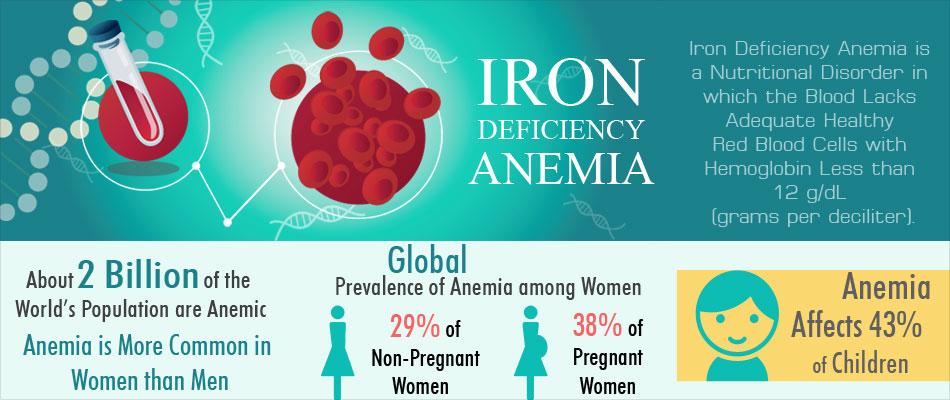About
Anemia is the commonest hematological disorder that may occur in pregnancy. In India, incidence of anemia in pregnancy has been noted to be as high as 40-80%.
About 4-16% of maternal deaths are due to anemia. It also increases maternal morbidity, fetal and neonatal mortality and morbidity significantly.
Being low in iron can lead to:
- More fatigue than normal in pregnancy
- Increased susceptibility to illness and infection
- Certain medications for labor pain cannot be administered, including an epidural
- Increased risk of post partum infections
- Increased risk of post-partum depression
- Pre-term delivery
- Low birth weight of the baby
- Higher risk of still birth or newborn death

The fetus starts to draw on maternal iron reserves around the 20th week. The baby may suffer from anemia if the situation is ignored.
Anemia can be due to iron deficiency or folate deficiency. Iron deficiency develops when the body does not get enough iron to keep up with the raised demands.
Definition of Anemia - Anemia is a lack of red blood cells, which can lead to a lack of oxygen-carrying ability, causing unusual tiredness.

WHO has accepted up to 11gm% as the normal hemoglobin level in pregnancy. However in India and most of the other developing countries, the lower limit is often accepted as 10 gm %.
Hematocrit value (% of RBCs relative to plasma volume) less than 33% is also termed as anemia.
Anemia criteria for the specific stage of pregnancy are:
| Trimester | Hemoglobin (g/dL) | Hematocrit (%) |
| First | <11 | <33 |
| Second | <10.5 | <32 |
| Third | <11 | <33 |




























